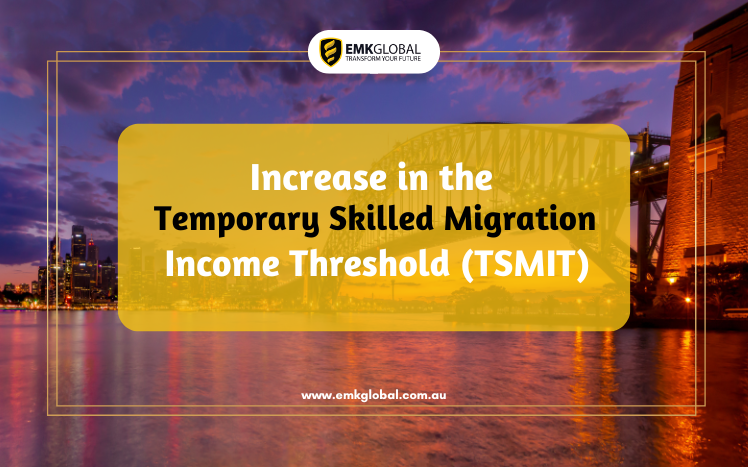Introduction
Starting July 1, 2024, the Australian Government will implement a significant change to the Temporary Skilled Migration Income Threshold (TSMIT). The threshold will be raised from $70,000 to $73,150. This change reflects the government’s commitment made during the Jobs and Skills Summit in September 2022.
What is the Temporary Skilled Migration Income Threshold (TSMIT)?
The TSMIT is a crucial benchmark in Australia’s skilled migration program. It sets the minimum income that an employer must offer to a temporary skilled migrant to ensure that the salary is fair and competitive. This threshold helps protect the local labor market by ensuring that overseas workers are not hired at significantly lower wages than Australian workers.
Key Details of the Increase
Effective Date:
- The new TSMIT of $73,150 will come into effect on July 1, 2024.
Application:
- All applications lodged from this date will be assessed based on the new TSMIT or the Annual Market Salary Rate (AMSR), whichever is higher. This ensures that the minimum income of overseas workers will be determined by the higher value between the TSMIT and the AMSR.
Impacted Visa Categories
The increase in TSMIT will affect several visa categories, including:
- Temporary Skill Shortage (subclass 482) Visa
- Employer-Sponsored Regional (subclass 494) Visa
- Employer Nomination Scheme (subclass 186) Visa (only via the Direct Entry stream)
Exemptions and Transitional Arrangements
- Existing Visa Holders and Applications:
The new TSMIT will not apply to existing visa holders, nominations, or applications lodged before July 1, 2024. These will continue to be assessed based on the previous TSMIT of $70,000.
Rationale Behind the Increase
The adjustment in the TSMIT is part of the Australian Government’s broader strategy to maintain a robust and competitive labor market. By ensuring that skilled migrants are offered salaries that reflect current market conditions, the government aims to attract highly skilled professionals while safeguarding the interests of Australian workers.
Future Developments
The Department of Home Affairs will provide further details on the indexation mechanism and salary requirements, including information on the new Skills in Demand Visa, once these are finalized in 2024. Stakeholders are advised to regularly check the Department of Home Affairs official website for updates.
Conclusion
The increase in the TSMIT is a significant development for employers and prospective skilled migrants. It underscores the Australian Government’s commitment to fair labor practices and its focus on maintaining a balanced and competitive job market. Employers and applicants should ensure they are informed about these changes and seek professional advice if necessary to navigate the new requirements effectively.
Stay updated on the latest changes in migration policies to make informed decisions and ensure compliance with the new regulations.
For more information and updates on the TSMIT and related immigration policies, visit the Department of Home Affairs official website.


